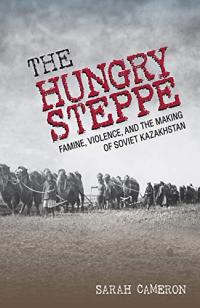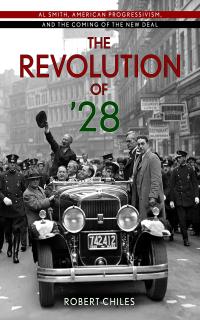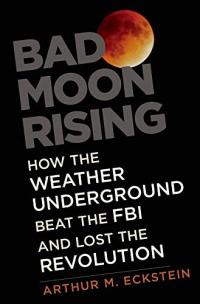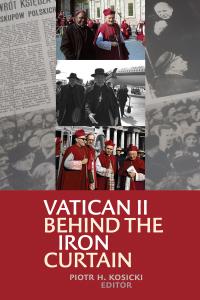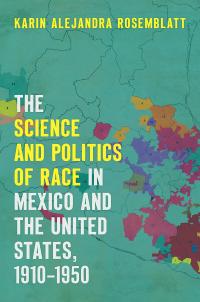Faculty Publications to 2022
Check out these books written by faculty members of the Department of History.
Sarah Cameron, Assistant Professor | The Hungry Steppe: Famine, Violence, and the Making of Soviet Kazakhstan
From the publisher: The Hungry Steppe examines one of the most heinous crimes of the Stalinist regime: the Kazakh famine of 1930–33. More than 1.5 million people, a quarter of Kazakhstan's population, perished. Yet the story of this famine has remained mostly hidden from view. Sarah Cameron reveals this brutal story and its devastating consequences for Kazakh society.
Through extremely violent means, the Kazakh famine created Soviet Kazakhstan, a stable territory with clear boundaries that was an integral part of the Soviet economy; and it forged a new Kazakh national identity. But ultimately, Cameron finds, neither Kazakhstan nor Kazakhs themselves integrated into Soviet society the way Moscow intended. The experience of the famine scarred the republic and shaped its transformation into an independent nation in 1991.
Cameron examines the Kazakh famine to overturn several assumptions about violence, modernization, and nation-making under Stalin, highlighting the creation of a new Kazakh national identity and how environmental factors shaped Soviet development. Ultimately, The Hungry Steppe depicts the Soviet regime and its disastrous policies in a new and unusual light.
Available here.
Robert Chiles, Lecturer | The Revolution of '28: Al Smith, American Progressivism, and the Coming of the New Deal
From the publisher: The Revolution of ’28 explores the career of New York governor and 1928 Democratic presidential nominee Alfred E. Smith. Robert Chiles peers into Smith’s work and uncovers a distinctive strain of American progressivism that resonated among urban, ethnic, working-class Americans in the early twentieth century. The book charts the rise of that idiomatic progressivism during Smith’s early years as a state legislator through his time as governor of the Empire State in the 1920s, before proceeding to a revisionist narrative of the 1928 presidential campaign, exploring the ways in which Smith’s gubernatorial progressivism was presented to a national audience. As Chiles points out, new-stock voters responded enthusiastically to Smith's candidacy on both economic and cultural levels.
Chiles offers a historical argument that describes the impact of this coalition on the new liberal formation that was to come with Franklin Delano Roosevelt’s New Deal, demonstrating the broad practical consequences of Smith’s political career. In particular, Chiles notes how Smith’s progressive agenda became Democratic partisan dogma and a rallying point for policy formation and electoral success at the state and national levels. Chiles sets the record straight in The Revolution of ’28 by paying close attention to how Smith identified and activated his emergent coalition and put it to use in his campaign of 1928, before quickly losing control over it after his failed presidential bid.
Available here.
Arthur M. Eckstein, Professor | Bad Moon Rising: How the Weather Underground Beat the FBI and Lost the Revolution
From the publisher: A startling history of the forlorn war between the Weather Underground and the FBI, based on interviews and 30,000 pages of previously unreleased FBI documents.
In the summer of 1970 and for years after, photos of Bill Ayers, Bernadine Dohrn, Jeff Jones, and other members of the Weather Underground were emblazoned on FBI wanted posters. In Bad Moon Rising, Arthur Eckstein details how Weather began to engage in serious, ideologically driven, nationally coordinated political violence and how the FBI attempted to monitor, block, and capture its members—and failed. Eckstein further shows that the FBI ordered its informants inside Students for a Democratic Society (SDS) to support the faction that became Weather during the tumultuous June 1969 SDS convention, helping to destroy the organization; and that the FBI first underestimated Weather’s seriousness, then overestimated its effectiveness, and how Weather outwitted them. Eckstein reveals how an obsessed and panicked President Nixon and his inner circle sought to bypass a cautious J. Edgar Hoover, contributing to the creation of the rogue Plumbers Unit that eventually led to Watergate.
Available here.
Piotr H. Kosicki, Assistant Professor | Catholics on the Barricades: Poland, France, and "Revolution," 1891 - 1956
From the publisher: In Poland in the 1940s and '50s, a new kind of Catholic intended to remake European social and political life—not with guns, but French philosophy.
This collective intellectual biography examines generations of deeply religious thinkers whose faith drove them into public life, including Karol Wojtyła, future Pope John Paul II, and Tadeusz Mazowiecki, the future prime minister who would dismantle Poland’s Communist regime.
Seeking to change the way we understand the Catholic Church, World War II, the Cold War, and communism, this study centers on the idea of “revolution.” It examines two crucial countries, France and Poland, while challenging conventional wisdom among historians and introducing innovations in periodization, geography, and methodology. Why has much of Eastern Europe gone back down the road of exclusionary nationalism and religious prejudice since the end of the Cold War? Piotr H. Kosicki helps to understand the crises of contemporary Europe by examining the intellectual world of Roman Catholicism in Poland and France between the Church's declaration of war on socialism in 1891 and the demise of Stalinism in 1956.
Available here.
Piotr H. Kosicki, Assistant Professor | Vatican II Behind the Iron Curtain
From the publisher: A substantial historiography has emerged across national and linguistic boundaries documenting the Second Vatican Council. And yet virtually no attention has been devoted to the links between the Council and the Catholic faithful who had found themselves living behind an iron curtain by the end of the 1940s. Historians of the Catholic Church have, in fact, mostly rejected the possibility that Communist countries played a role in the Council's story, or that the Council in turn shaped the subsequent paths of those countries.
The goal of this volume is to begin writing Central and Eastern Europe back into the story of the Second Vatican Council, its origins, and its consequences. This volume assembles―for the first time in any language―a broad overview of the place of four different Communist-run countries―Czechoslovakia, Hungary, Poland, and Yugoslavia―in the story of the Council. Framing these is an account of how the Cold War impacted the Council and its reception. The book engages with both English-language scholarship and the national historiographies of the countries that it examines, offering a global lens on the present state of research (covering all relevant languages) and seeking to propel that research forward. All of the chapters draw on both non-English secondary literature and original primary sources―some published, some archival.
In all four countries, religious aggiornamento went hand in hand with waves and spurts of political liberalization. Though short-lived in their initial form, civic aggiornamenti magnified the impact of religious aggiornamento. Every country behind the Iron Curtain was different, yet even across such diverse situations, one finds evidence that societies engaged with Vatican II―and, moreover, that the Council furnished a set of norms and aspirations that would play a significant role in the final years of the Cold War. The election of St. John Paul II in 1978, a pope from behind the Iron Curtain, lit a match, but the tinder had been set much earlier for modernization, reform, and an embrace of pluralism―even among Catholics living behind the Iron Curtain.
Available here.
Karin Alejandra Rosemblatt, Professor | The Science and Politics of Race in Mexico and the United States, 1910 - 1950
From the publisher: In this history of the social and human sciences in Mexico and the United States, Karin Alejandra Rosemblatt reveals intricate connections among the development of science, the concept of race, and policies toward indigenous peoples. Focusing on the anthropologists, sociologists, biologists, physicians, and other experts who collaborated across borders from the Mexican Revolution through World War II, Rosemblatt traces how intellectuals on both sides of the Rio Grande forged shared networks in which they discussed indigenous peoples and other ethnic minorities. In doing so, Rosemblatt argues, they refashioned race as a scientific category and consolidated their influence within their respective national policy circles.
Post-revolutionary Mexican experts aimed to transform their country into a modern secular state with a dynamic economy, and central to this endeavor was learning how to “manage” racial difference and social welfare. The same concern animated U.S. New Deal policies toward Native Americans. The scientists’ border-crossing conceptions of modernity, race, evolution, and pluralism were not simple one-way impositions or appropriations, and they had significant effects. In the United States, the resulting approaches to the management of Native American affairs later shaped policies toward immigrants and black Americans, while in Mexico, officials rejected policy prescriptions they associated with U.S. intellectual imperialism and racial segregation.
Available here.
Julie Taddeo, Associate Research Professor | Conflicting Masculinities: Men in Television Period Drama
From the publisher: Never before has period drama offered viewers such an assortment of complex male characters, from transported felons and syphilitic detectives to shell shocked soldiers and gangland criminals. Neo-Victorian Gothic fictions like Penny Dreadful represent masculinity at its darkest, Poldark and Outlander have refashioned the romantic hero and anti-heritage series like Peaky Blinders portray masculinity in crisis, at moments when the patriarchy was being bombarded by forces like World War I, the rise of first wave feminism and the breakdown of Empire. Scholars of film, media, literature and history explore the very different types of maleness offered by contemporary television and show how the intersection of class, race, history and masculinity in period dramas has come to hold such broad appeal to twenty-first-century audiences.
For more information and availability, click here.
Peter Wien, Professor | Arab Nationalism: The Politics of History and Culture in the Modern Middle East
From the publisher: Arab nationalism has been one of the dominant ideologies in the Middle East and North Africa since the early twentieth century. However, a clear definition of Arab nationalism, even as a subject of scholarly inquiry, does not yet exist.
Arab Nationalism sheds light on cultural expressions of Arab nationalism and the sometimes contradictory meanings attached to it in the process of identity formation in the modern world. It presents nationalism as an experienceable set of identity markers – in stories, visual culture, narratives of memory, and struggles with ideology, sometimes in culturally sophisticated forms, sometimes in utterly vulgar forms of expression. Drawing upon various case studies, the book transcends a conventional history that reduces nationalism in the Arab lands to a pattern of political rise and decline. It offers a glimpse at ways in which Arabs have constructed an identifiable shared national culture, and it critically dissects conceptions about Arab nationalism as an easily graspable secular and authoritarian ideology modeled on Western ideas and visions of modernity.
This book offers an entirely new portrayal of nationalism and a crucial update to the field, and as such, is indispensable reading for students, scholars and policymakers looking to gain a deeper understanding of nationalism in the Arab world.
Available here.


